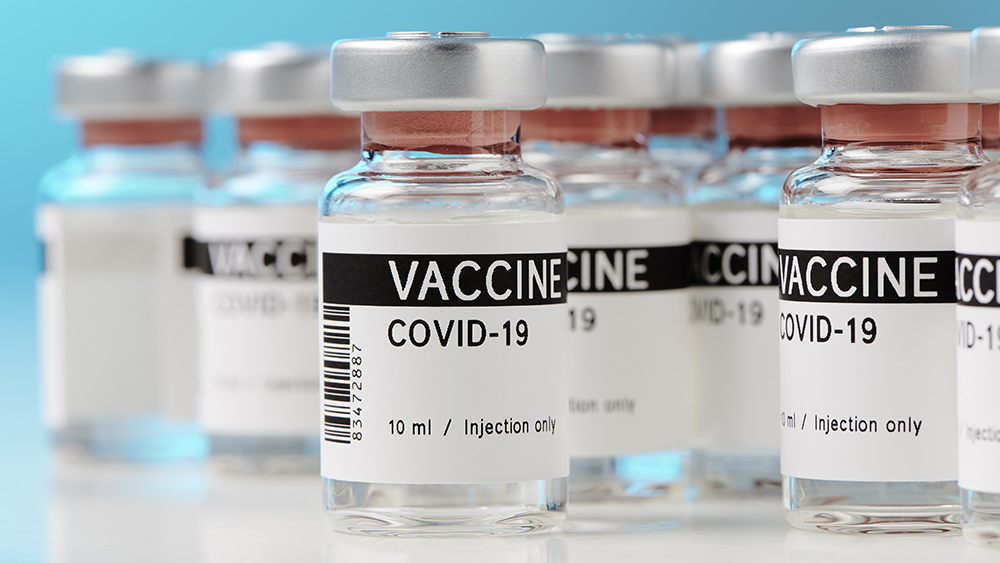The medical “research” RACKET: $350 million in royalties was secretly paid to NIH scientists, including Fauci
05/12/2022 / By Ethan Huff

Fake government “doctor” Tony Fauci was the recipient of at least 23 “secret” royalty payments that were sent by third parties to the National Institutes of Health (NIH) for medical “research.”
The total amount that Fauci received in cash from these payments remains unknown as the NIH refuses to disclose this information. What we do know is that Fauci and thousands of others accepted more than $350 million in such payments between fiscal years 2010 and 2020.
“Last year, the National Institutes of Health (NIH) – Dr. Anthony Fauci’s employer – doled out $30 billion in government grants to roughly 56,000 recipients,” wrote Adam Andrzejewski in a piece for The Defender.
Andrzejewski’s non-profit group Open the Books helped uncover the scheme, which has been going on for more than a decade.
“That largess of taxpayer money buys a lot of favor and clout within the scientific, research and healthcare industries.”
“However, in our breaking investigation, we found hundreds of millions of dollars in payments also flow the other way. These are royalty payments from third-party payers (think pharmaceutical companies) back to the NIH and individual NIH scientists.”
What is Fauci trying to hide?
It is believed that most, if not all, of the royalty payments made during the time period investigated are potential conflicts of interest. This is why disclosure is needed to set the record straight.
The NIH, however, refuses to provide that disclosure. More than 22,100 royalty payments totaling nearly $134 million were paid to the agency and its nearly 1,700 scientists between September of 2009 and September of 2014.
Andrzejewski’s group filed a lawsuit against the NIH to procure evidence that royalties were even being paid at all. Now, the group is trying to figure out how much specifically went to Fauci.
“The agency admits to holding 3,000 pages of line-by-line royalties since 2009,” Andrzejewski writes. “So far, they’ve produced only 1,200 pages. The next 1,800 pages of production will cover the period 2015 – 2020.”
“However, what NIH has produced to date gives us insight into the undisclosed royalty largess. For example, only 900 scientists were estimated to be receiving royalties, so now we know the universe is much larger.”
Because the NIH heavily redacted the documents it did provide to Open the Books, there are still many unknowns concerning the details of the payments. Andrzejewski calls this “gatekeeping at odds with the spirit and perhaps the letter of open-records laws.”
We know that Fauci’s $456,028-per-year salary was heavily subsidized with those 23 royalty payments. Fauci, by the way, is currently the highest-paid federal bureaucrat, receiving more taxpayer cash every year than even the president.
Francis Collins, the former head of the NIH, receives an annual salary of $203,500. We know from the documents that Collins also received 14 royalty payments.
Then we have Clifford Lane, Fauci’s deputy at the National Institute for Allergy and Infectious Diseases (NIAID). Lane takes in $325,287 a year and has received eight royalty payments.
Andrzejewski says that the NIH is actively using taxpayer money to keep the general public in the dark about who is receiving what money and when. The NIH is doing this by:
• Denying the Freedom of Information Act (FOIA) law and refusing to acknowledge Open the Books’ open records requests
• Engaging in taxpayer-funded litigation to slow-walk royalty disclosures to releases of just 300 pages per month – the NIH claims to be holding 3,000 pages, so do the math
• Heavily redacting key information about royalty payments, including the amount paid and, more importantly, who paid it.
“This makes the court-mandated production virtually worthless, despite our use of the latest forensic auditing tools,” Andrzejewski says.
More related news about Tony Fauci and the NIH can be found at Corruption.news.
Sources for this article include:
Submit a correction >>
Tagged Under:
Big Pharma, bribery, collins, corruption, Fauci, fraud, kickbacks, medical research, NIH, payments, pharma shills, Plandemic, racket, research, royalties
This article may contain statements that reflect the opinion of the author
RECENT NEWS & ARTICLES
COPYRIGHT © 2017 RESEARCH NEWS




















